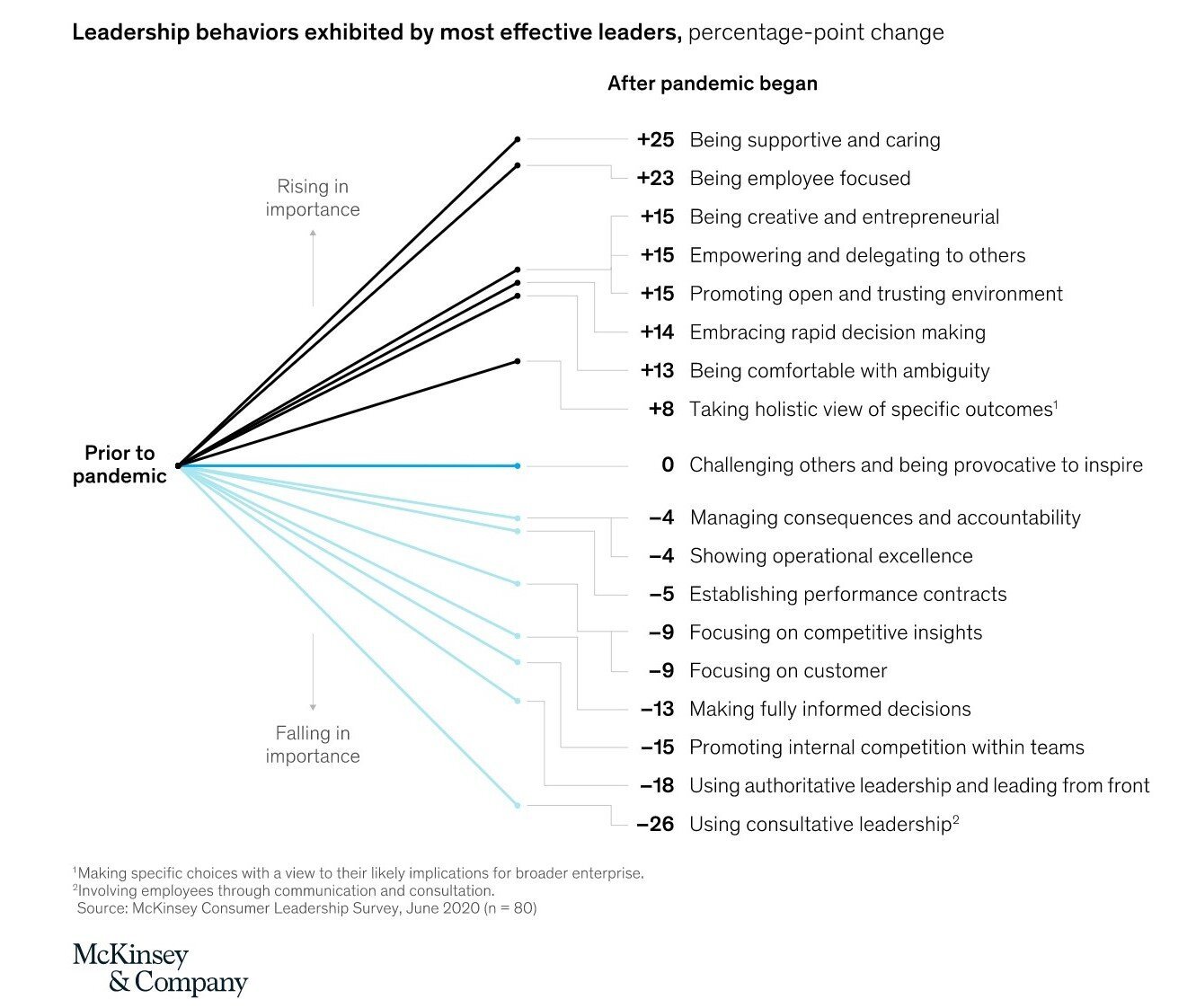5 Expectations of Leaders Right Now
Leadership constantly changes. It doesn’t stand still. You can’t define it in 2020 and expect it to be the same in 2021. Global and local events, as well as organisational shifts, require leaders to continually look at their behavioural responses.
This continual evolution is often what sets leaders apart from managers. They see it, respond to it, unlearn and learn from it and never stop looking for ways to improve.
This McKinsey article from November 2020 included the following graphic that shows how expectations of leaders have shifted throughout the pandemic.
It is great to see ‘Being supportive and caring’ at the top of the list, but what is notable is how employees are looking for more direction and less consultative leadership. In times of crisis we often just want to be told what to do. We might not always like it, but providing it’s done in an empathetic, compassionate and caring way then we’re more likely to accept it.
So, off the back of this research and many other papers that I read over the end of year break, I thought I’d outline the five expectations of leaders in 2021:
Empathy - recognition that the world is still a confused and volatile place. This means that people will react wildly differently and this requires compassion and understanding. Similarly with the return to the office. Some people are desperate to get back, some not so much. The ‘one size fits all’ approach to working (or communicating any of these changes for that matter) has never worked. Before making decisions, consider how they will be seen by everyone.
Visibility - people want to see and hear from you regularly. Not via email, but ‘live’. Make sure expectations are set face-to-face (virtually and in-person where possible) and that when decisions are to be made you’re available. In times of war, the best generals joined their troops on the front line. Don’t wait in the back for news, get out there and find out for yourself what’s going on and how you can help
Trust - I understand that the shift to virtual working was tough for many managers to deal with as often the default position that people take on this is that staff can’t be trusted to be 100% productive all of the time. However, the reality is that this only occurs for a very small minority of people and for many the opposite is true: they work longer hours. So trust your people to do the right thing and (linking back to empathy) ensure that they aren’t overworking. Where you have isolated trust issues, deal with them swiftly.
Culture redefinition - the start of the year is a perfect opportunity for the team to reset their expectations of each other and to be clear about how they’ll behave, work together and make time for creativity in order to meet the challenges of 2021 head-on. Don’t wait to do this or hope it will sort itself out... it won’t. Take the lead on investing in your people to create the conditions for success
Expectation setting - above all else, employees want to know what needs to be done, by when and to what level of quality. They don’t want to be told how to do it (that undermines trust) or how to behave (that’s part of the culture definition process), they just want clarity and support. Be clear about what you need, then get out of the way.
Leadership will evolve throughout the year, particularly if/when your organisation returns to face-to-face working. Never stop listening and evolving your style to meet the challenges of today and tomorrow, not yesterday.


